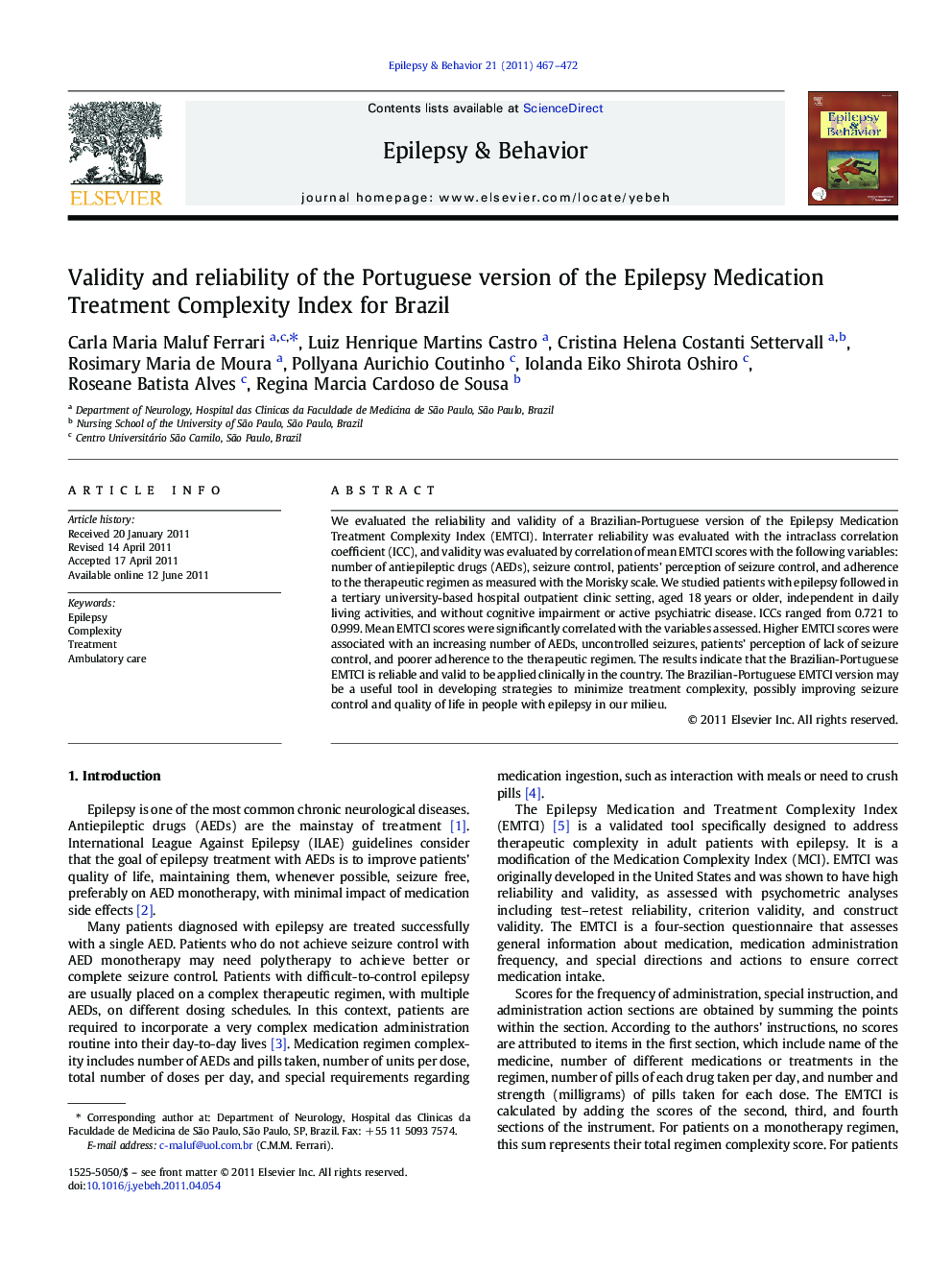| Article ID | Journal | Published Year | Pages | File Type |
|---|---|---|---|---|
| 6014366 | Epilepsy & Behavior | 2011 | 6 Pages |
We evaluated the reliability and validity of a Brazilian-Portuguese version of the Epilepsy Medication Treatment Complexity Index (EMTCI). Interrater reliability was evaluated with the intraclass correlation coefficient (ICC), and validity was evaluated by correlation of mean EMTCI scores with the following variables: number of antiepileptic drugs (AEDs), seizure control, patients' perception of seizure control, and adherence to the therapeutic regimen as measured with the Morisky scale. We studied patients with epilepsy followed in a tertiary university-based hospital outpatient clinic setting, aged 18Â years or older, independent in daily living activities, and without cognitive impairment or active psychiatric disease. ICCs ranged from 0.721 to 0.999. Mean EMTCI scores were significantly correlated with the variables assessed. Higher EMTCI scores were associated with an increasing number of AEDs, uncontrolled seizures, patients' perception of lack of seizure control, and poorer adherence to the therapeutic regimen. The results indicate that the Brazilian-Portuguese EMTCI is reliable and valid to be applied clinically in the country. The Brazilian-Portuguese EMTCI version may be a useful tool in developing strategies to minimize treatment complexity, possibly improving seizure control and quality of life in people with epilepsy in our milieu.
Research highlights⺠The EMTCI, an instrument used to assess treatment complexity in patients with epilepsy, is validated. ⺠The association of mean Epilepsy Medication Treatment Complexity Index scores with the Morisky scale was evaluated. ⺠Higher scores were related to larger number of AEDs, uncontrolled seizures, perception of lack of control and nonadherence.
